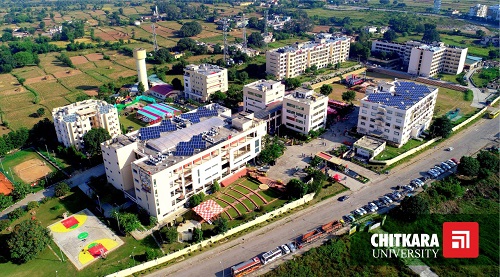Chitkara University Secures Approval of PFAS Project from Government
Chitkara University has secured approval and received research funding for its project that will estimate the presence of human-made chemicals in rivers and ground/drinking water in Himachal Pradesh.
 |
Chitkara University Campus
The grant, which is worth Rs. 47 lakhs, was sanctioned under the Core Research Grant Scheme (CRG), Science and Engineering Research Board (SERB), Department of Science and Technology, Government of India, DST, New Delhi.
The goal of this project is to investigate the chemicals, known as Per and Polyfluoroalkyl Substances or PFAS in ground and drinking water which could be key for risk assessment of these chemicals.
Talking about the project, Dr. Nitin Verma, Professor and Principal, School of Pharmacy, Chitkara University, Himachal Pradesh, said, “In India, the PFAS has been investigated very less. So, we have started this initiative which could serve as the scientific evidence for regulations. PFAS is a toxic compound which is found in abundance in our households and has raised concerns due to its wide use in processes and products and toxic properties that lead to wide dispersion and water pollution. They are very persistent organic pollutants and have heavily contaminated the global environment due to their extreme stability and long half-lives.”
“The toxicity potential of these substances is very severe and will impact multigenerational and learning and cognitive impairment in children. With this project, we would get the preliminary data which would lead us to identify appropriate actions necessary to eliminate the hazard or control it,” he said.
Elaborating on the lack of research on PFAS in India, Dr. Verma said, “People are not made aware of the harmful effects of this chemical which is available at such a large scale. Moreover, it is so widely used that replacing this chemical is difficult. This motivated me and my team to initiate research on this topic so that people become aware and some alternatives can be introduced as it researches only that provides evidence and base for regulations.”

Comments
Post a Comment